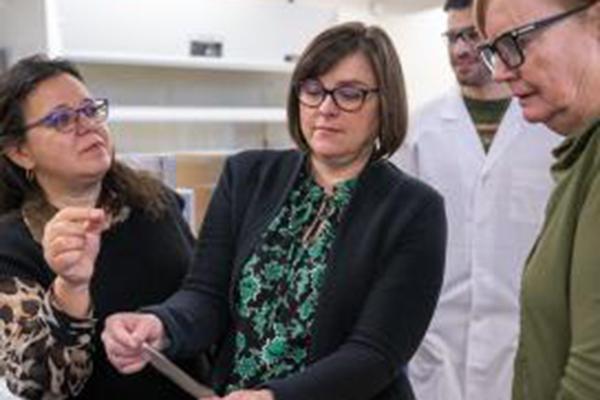Forty Penn State graduate students were named recipients of Penn State’s most prestigious annual graduate student awards, administered by the Graduate School in collaboration with several Penn State units. The awards recognize and celebrate graduate students who are excelling in teaching, research and service, as well as other academic pursuits.
The Penn State College of Engineering’s Learning Factory will host its end-of-semester showcase for senior engineering students to present their capstone design projects with both in-person and virtual formats.
Alumnus Walter Moorhead, president of Product Evaluation Systems, Inc. (PES), will present the 2023 Richard E. Tressler Lecture at 3:05 p.m. Thursday, March 30, in 111 Wartik Laboratory on the Penn State University Park campus. Moorhead’s lecture is titled “Materials science and engineering — materials lab intern to lab owner.”
The Defense Advanced Research Projects Agency (DARPA) is administering a $46.4 million, four-year research project to develop and test a whole blood product that is storable at room temperature and can be transfused to wounded soldiers in the field within 30 minutes of injury
From fiber optic cables to smartphones, glass is playing a major role in emerging technology. To learn more about how glass will shape future society, we spoke with Katelyn Kirchner, a doctoral candidate at Penn State, who is studying with John Mauro, Penn State’s Dorothy Pate Enright Professor of Materials Science and Engineering. Kirchner is lead author and Mauro corresponding author on a recent review article on the unique properties of glass published in the journal Chemical Reviews.
The American Institute for Medical and Biological Engineering (AIMBE) has elected a Penn State engineer to its College of Fellows. Dipanjan Pan, Dorothy Foehr Huck & J. Lloyd Huck Chair Professor in Nanomedicine and professor of nuclear engineering and of materials science and engineering, was inducted at the 2023 AIMBE ceremony held March 26-27 in Washington, D.C. Pan is also affiliated with the Department of Biomedical Engineering and with the Huck Institutes.
Mauricio Terrones, Evan Pugh University Professor and Verne M. Willaman Professor of Physics, and professor of chemistry and of material science and engineering, has been named the new George A. and Margaret M. Downsbrough Head of the Department of Physics at Penn State, effective July 1. Terrones succeeds Nitin Samarth, who has served as head of the department since 2011.
It was an unusual scene on an overcast day in July 2022 at the University Park West Campus intramural fields. Near quiet tennis courts, a group of around 100 first-year college students, high school students, graduate students from several universities, faculty and administrators, and military visitors gathered around several display tables, including one dishing out Berkey Creamery ice cream. Nearby, a somewhat ominous, mysterious large black drone hovered with a distinct high-pitched buzz.
Penn State held a Town Hall meeting recently to discuss internal strategies around semiconductor technologies and taking on a key role in partnering with other universities and industry centered on the U.S. government’s CHIPS (Creating Helpful Incentives to Produce Semiconductors) and Science Act, which was signed into law on Aug. 9, 2022. The intent of this meeting was to share Penn State’s significant and spanning capabilities and expertise and facilitate internal alignment. Meetings have already taken place and will continue to occur with other university, industry and state partners.
Additive manufacturing technology, also known as 3D printing, provides the opportunity to create customized medical devices. However, the capabilities to design and print the smart, flexible materials this type of equipment requires remain lacking, according to researchers at Penn State and The University of Texas at Austin.











